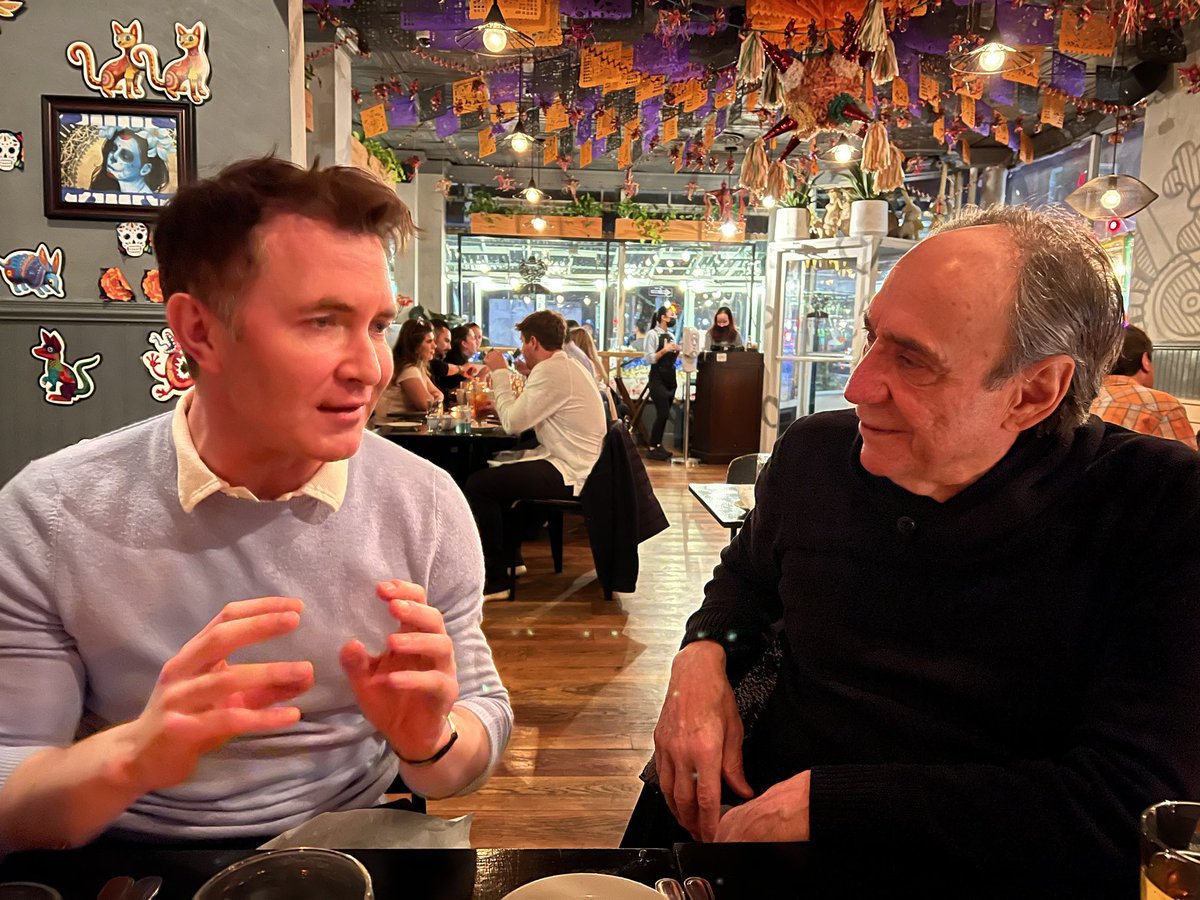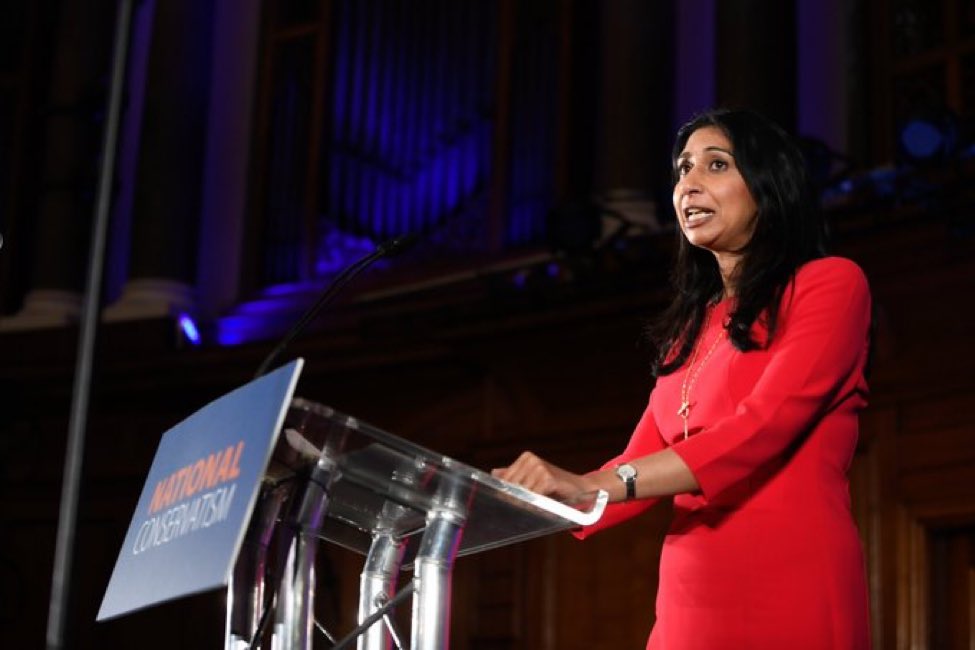When it comes to understanding the mind behind modern intellectual debates, Douglas Murray is a name that stands out. His work as a writer, commentator, and public intellectual has sparked conversations on education, culture, and society. In this article, we’ll dive deep into Douglas Murray education, exploring his academic background, the impact of his studies, and how his education shaped his worldview. If you’re curious about the man behind the ideas, this is the perfect place to start.
Douglas Murray isn’t just another face in the crowd. He’s a thinker who challenges the status quo and encourages people to rethink their perspectives. His educational journey plays a crucial role in shaping his arguments and the way he approaches complex issues. By understanding his education, we can better grasp the foundation of his ideas.
In this article, we’ll take you through his academic history, the institutions he attended, and the lessons he learned along the way. Whether you’re a fan of his work or simply curious about his background, this article will give you a comprehensive look at Douglas Murray education. So, let’s get started!
Read also:7movierulz The Ultimate Guide To Understanding The Controversial Movie Streaming Site
Biography of Douglas Murray
Before diving into his education, it’s essential to know who Douglas Murray is. Born on January 25, 1979, in London, England, Douglas has become a prominent voice in contemporary debates. Here’s a quick look at his life:
| Full Name | Douglas Richard Murray |
|---|---|
| Birth Date | January 25, 1979 |
| Birth Place | London, England |
| Occupation | Writer, Commentator, Public Intellectual |
| Education | University of Cambridge, University of Oxford |
Douglas Murray’s life has been dedicated to exploring the complexities of modern society. His education laid the groundwork for his career, and we’ll explore that in the sections below.
Douglas Murray Education Overview
Read also:5movierulz Your Ultimate Guide To Streaming And Downloading Movies
Early Years: The Foundation of Learning
Every great thinker starts somewhere, and Douglas Murray’s early years were no exception. Growing up in London, he was exposed to a diverse range of ideas and cultures. This early exposure played a significant role in shaping his worldview. During his school years, Murray showed a keen interest in history, politics, and philosophy.
His teachers noticed his curiosity and encouraged him to pursue his interests. This support helped him develop a love for learning that would continue throughout his life. By the time he finished high school, Douglas was already thinking about the big questions that would later define his career.
Key Takeaways from Early Education
- Exposure to diverse ideas in London
- Interest in history, politics, and philosophy
- Support from teachers who nurtured his curiosity
University of Cambridge: A Turning Point
After completing his secondary education, Douglas Murray attended the prestigious University of Cambridge. This was a turning point in his academic journey. At Cambridge, he studied history, a subject that would become central to his later work. The rigorous curriculum and intellectual environment at Cambridge pushed him to think critically and challenge his assumptions.
During his time at Cambridge, Murray engaged in debates with fellow students and professors. These discussions honed his ability to articulate complex ideas and defend his positions. The friendships he formed during this period also played a crucial role in shaping his worldview.
What Did He Learn at Cambridge?
- Critical thinking and analysis
- Historical perspectives on modern issues
- The importance of intellectual rigor
University of Oxford: Deepening His Knowledge
After Cambridge, Douglas Murray continued his education at the University of Oxford. Oxford provided him with the opportunity to deepen his understanding of philosophy and political theory. This period of his life was marked by intense study and intellectual growth.
At Oxford, Murray explored the works of great thinkers like John Locke and Jean-Jacques Rousseau. He also engaged in discussions about the role of education in society, a topic that would later become a central theme in his writings.
Key Themes from Oxford
- Philosophical foundations of modern society
- Role of education in shaping culture
- Importance of intellectual diversity
Influence of Education on His Work
Douglas Murray’s education had a profound influence on his work. The knowledge and skills he gained during his academic journey allowed him to tackle complex issues with confidence and clarity. His writings often reflect the historical and philosophical insights he acquired at Cambridge and Oxford.
For example, his book “The Strange Death of Europe” draws heavily on his understanding of history and philosophy. In this book, Murray explores the cultural and political challenges facing Europe today. His ability to connect historical events with contemporary issues is a testament to the quality of his education.
How Education Shaped His Ideas
- Historical context for modern debates
- Philosophical frameworks for analyzing society
- Critical thinking skills for tackling complex issues
Impact on His Work
The impact of Douglas Murray education extends beyond his writing. It has also influenced his role as a public intellectual and commentator. His ability to engage with diverse audiences and communicate complex ideas in an accessible way is a direct result of his academic training.
Through his work, Murray challenges people to think critically about the world around them. He encourages readers to question assumptions and seek deeper understanding. This approach has made him a popular figure in intellectual circles and beyond.
Examples of His Impact
- Challenging societal norms through his writing
- Engaging with diverse audiences as a commentator
- Encouraging critical thinking and open dialogue
Challenges Faced During His Education
No academic journey is without its challenges, and Douglas Murray faced his share of obstacles. One of the biggest challenges he encountered was balancing his studies with his growing interest in public discourse. As a student, he was already involved in debates and discussions outside of the classroom, which sometimes made it difficult to focus on his coursework.
Despite these challenges, Murray persevered. He learned to manage his time effectively and prioritize his goals. These skills have served him well in his career as a writer and commentator.
Lessons from Overcoming Challenges
- Time management and prioritization
- Resilience in the face of obstacles
- Ability to balance multiple interests
Lessons Learned from His Education
Douglas Murray’s education taught him valuable lessons that have stayed with him throughout his career. One of the most important lessons was the importance of intellectual humility. He learned that even the most brilliant minds can be wrong, and that it’s essential to remain open to new ideas and perspectives.
Another key lesson was the value of collaboration. During his time at Cambridge and Oxford, Murray worked closely with fellow students and professors. These collaborations helped him develop a deeper understanding of complex issues and taught him the importance of teamwork.
Key Lessons from His Academic Journey
- Intellectual humility and openness to new ideas
- Value of collaboration and teamwork
- Importance of critical thinking and analysis
Modern Perspective on Education
Douglas Murray’s perspective on education is shaped by his experiences as both a student and a commentator. He believes that education should be more than just the acquisition of knowledge. It should also foster critical thinking, creativity, and a sense of responsibility.
In today’s world, Murray argues that education needs to adapt to changing societal needs. This means incorporating new technologies and teaching methods while maintaining a focus on core values. By doing so, education can prepare students to face the challenges of the future.
His Vision for the Future of Education
- Emphasis on critical thinking and creativity
- Incorporation of new technologies and methods
- Focus on core values and responsibility
Contribution to Education
Beyond his own education, Douglas Murray has contributed significantly to the field of education through his writings and public speaking. He has written extensively on the role of education in shaping society and the importance of fostering intellectual diversity. His work challenges educators to rethink traditional approaches and embrace new ideas.
Murray’s contribution to education is not limited to theory. He has also been involved in initiatives aimed at improving access to quality education for all. Through his efforts, he hopes to create a more informed and engaged society.
His Impact on Educational Reform
- Advocacy for intellectual diversity
- Efforts to improve access to quality education
- Challenging traditional approaches to education
Future of Education: Douglas Murray’s Vision
Looking to the future, Douglas Murray envisions an education system that prepares students for the challenges of the 21st century. This system would emphasize critical thinking, creativity, and adaptability. It would also recognize the importance of diversity and inclusion, ensuring that all students have the opportunity to succeed.
To achieve this vision, Murray believes that educators must be willing to embrace change and innovation. They must also be committed to fostering a love of learning in their students. By doing so, education can become a powerful force for positive change in society.
Key Elements of His Vision
- Critical thinking and creativity
- Adaptability and innovation
- Diversity and inclusion
Conclusion: The Legacy of Douglas Murray Education
In conclusion, Douglas Murray education has played a vital role in shaping his career as a writer, commentator, and public intellectual. From his early years in London to his studies at Cambridge and Oxford, his academic journey has provided him with the knowledge and skills needed to tackle complex issues with confidence and clarity.
As we look to the future, Douglas Murray’s vision for education offers hope and inspiration. By emphasizing critical thinking, creativity, and adaptability, we can create a system that prepares students to face the challenges of the future. So, take a moment to reflect on the lessons of Douglas Murray education and consider how they might apply to your own life.
Now, it’s your turn! Leave a comment below sharing your thoughts on Douglas Murray’s ideas about education. Or, if you enjoyed this article, feel free to share it with your friends and family. Together, we can continue the conversation and work towards a brighter future for all.

